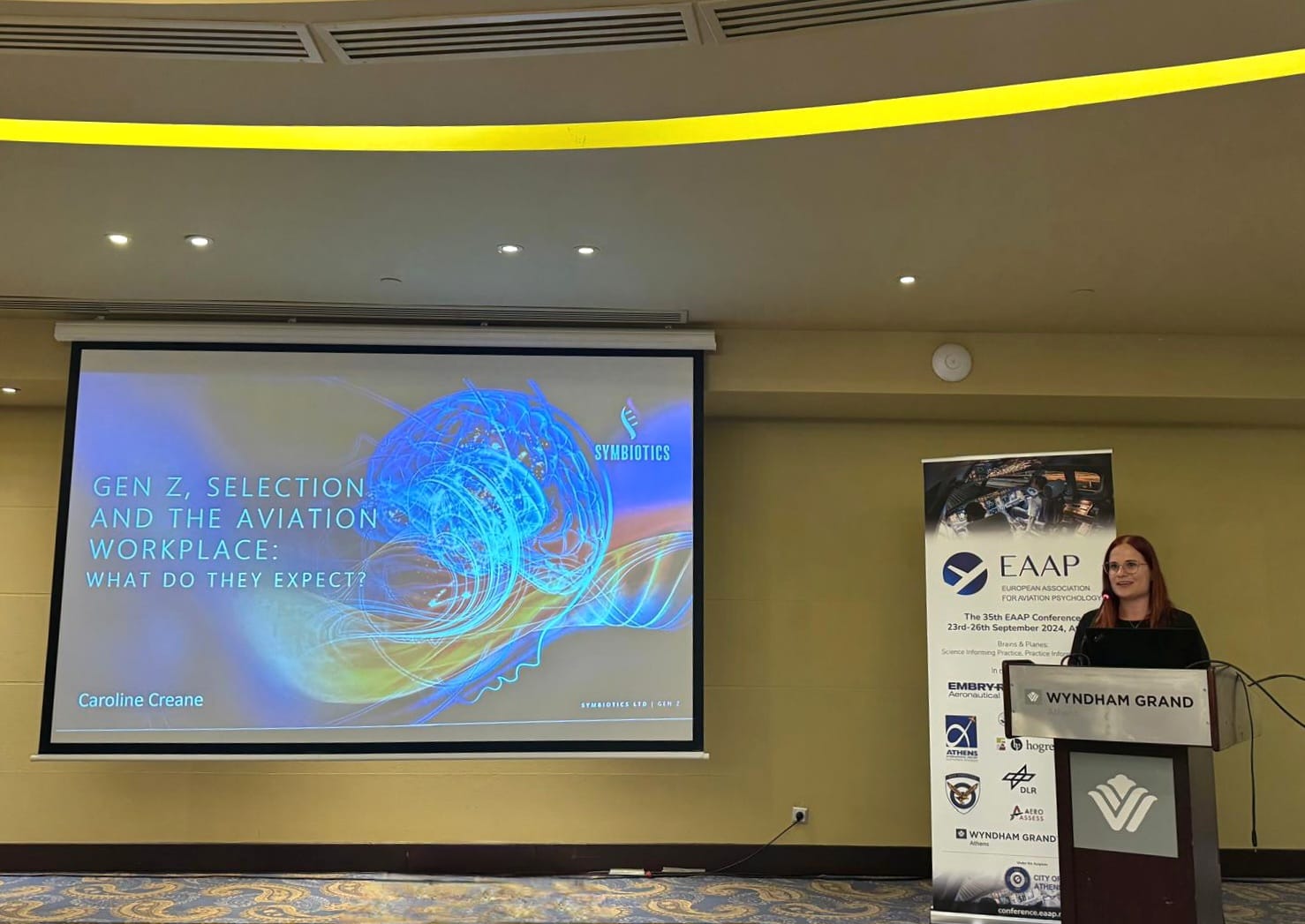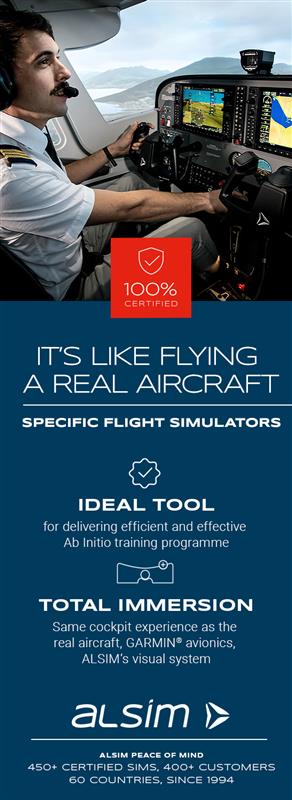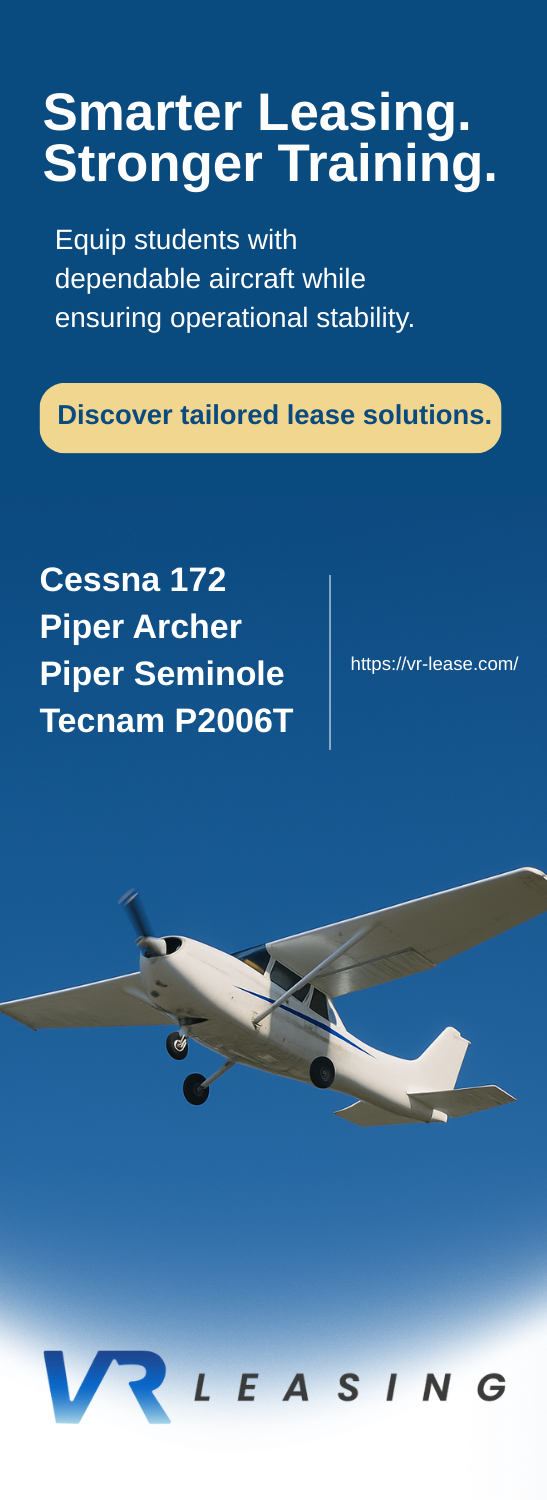Symbiotics Reflects on Key Learnings and Insights from the European Association for Aviation Psychology Conference 2024
Members of Symbiotics’ psychology team – Associate Aviation Psychologist Aleksandra Kapela, Psychology Consultant Caroline Creane and Assistant Assessment Psychologist Klara Jirakova, headed out to the recent European Association for Aviation Psychology (EAAP) Conference, that happened over September 23-26 2024 in the beautiful city of Athens.
The EAAP Conference was its most successful gathering yet with over 350 attendees and showcasing the largest number of submitted papers to date. This event brought together a diverse mix of professionals, including psychologists, human factors personnel, airline HR representatives and industry experts, fostering a rich exchange of knowledge and ideas.
Key Findings and Discussions
The conference centred around critical themes in aviation psychology, with artificial intelligence (AI) emerging as the hottest topic across multiple streams alongside increasing automation, training and cognitive skills, selection and mental well-being. The Monday workshop on selection allowed for an excellent exchange of ideas and expectations between industry professionals, coming after the hugely successful EAAP Selection Seminar in 2023 and the release of EASA’s findings report on the psychological assessment regulation implementation earlier this year. Discussions within the Symbiotics team at the event also highlighted the demand for greater cabin crew visibility in the aviation psychology world, as the majority of talks primarily centred on pilots and air traffic controllers (ATC).
A notable presence of industry representatives, including key players like Qatar Airways, Wizz Air, SunExpress, and Turkish Airlines, underlined the growing interest in the intersection of psychology and aviation performance, and it was fantastic to see so many different nationalities at the conference, from Europe and beyond, coming together to share their expertise and build relationships with their peers.
Award-Winning Research & Invaluable Insights
The conference celebrated outstanding research contributions, with Monica Martinussen being awarded “Best Paper 2022” for her team’s longitudinal study on predicting commercial pilot training performance. This research demonstrated the predictive power of cognitive and psychomotor assessments, and it was great to see a predictive validity study taking centre stage, particularly when reflecting on the considerable challenges that come with collecting performance data beyond the point of selection.
There were other excellent papers on selection presented, including speakers from SunExpress and Mollymawk, DLR, and the Singapore Air Force, highlighting the importance of different aspects of performance when predicting pilot success, including cognitive abilities, academic test scores and simulator performance.
Our psychologists also appreciated the two highly insightful keynote speeches, delivered by Dr Kathy Abbott representing the FAA, and Dr. Kate Manderson of the Australian CASA. Both presentations provided a lot of food for thought, in understanding current human factors issues and trends within the industry and how different regional regulators may approach these, as well as the necessity of fostering a culture of trust to enhance safety through self-reporting.
On the last day of the conference, our psychologist Caroline Creane presented as part of the ‘Recruitment, Diversity and Generational differences’ stream alongside 5 other presenters, covering a range of topics from gender differences in pilot training to recruitment criteria for airport security. This session generated some excellent discussion around how practitioners can frame the topic of group differences in recruitment and selection going forward, which may help to reduce negative preconceptions.
Looking Ahead
The conference not only highlighted current industry challenges, but also sparked discussions on future directions, and the team came away energised with new ideas and different perspectives to carry forward into practice over the next couple of years, as well as looking towards EAAP 36 in 2026. There was significant interest in our own project gathering data around generational differences and expectations within selection as well as expanding this to include Cabin Crew personnel, as well as in exploring the implications of immersive technology and AI for selection processes, and we will be keeping a close eye on further development in the assessment field as the use of these technologies.
As the aviation industry moves forward and tackles new challenges in recruitment and selection, the emphasis should remain on the predictive validity of assessments, with ongoing conversations about the relevance of personality traits in predicting competency and performance beyond the traditional binary training success/failure. With AI also taking centre stage in the industry, the aviation psychology field will need to carefully consider implications for selection and training in the aviation sector.
Conclusion
The EAAP conference has set the stage for a collaborative future in aviation psychology, merging academic insights with practical applications. As the field evolves, the EAAP Conference remains dedicated to fostering dialogue, advancing research, and ultimately enhancing the psychological well-being of aviation professionals.
Caroline Creane, Psychologist Consultant for Symbiotics, who attended the event said:
“EAAP 35 was an excellent opportunity to engage with our peers within the aviation industry, both those working in the selection field and beyond; I/we enjoyed catching up with existing contacts and clients, as well as forming hopefully long-lasting relationships with new friends and colleagues. There was a wealth of scientific rigor on show through the presented papers and I/we were thankful for the opportunity to present alongside so many experienced and inspiring speakers from the industry. We have come away with valuable knowledge to inform best practice as well as ideas on what we can do to contribute to the knowledge base going forward, looking to the next EAAP conference and beyond.”
Source: Symbiotics
Photo Credit: Symbiotics

You may also check our Terms and Conditions for our Content Policy.
Searching for specific information – kindly contact us to see if we can assist you.
Check out the more than 18738 relevant pilot training industry updates here.




